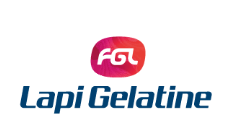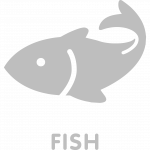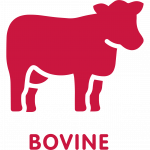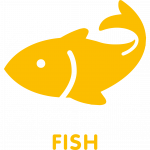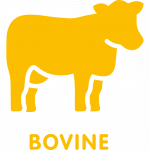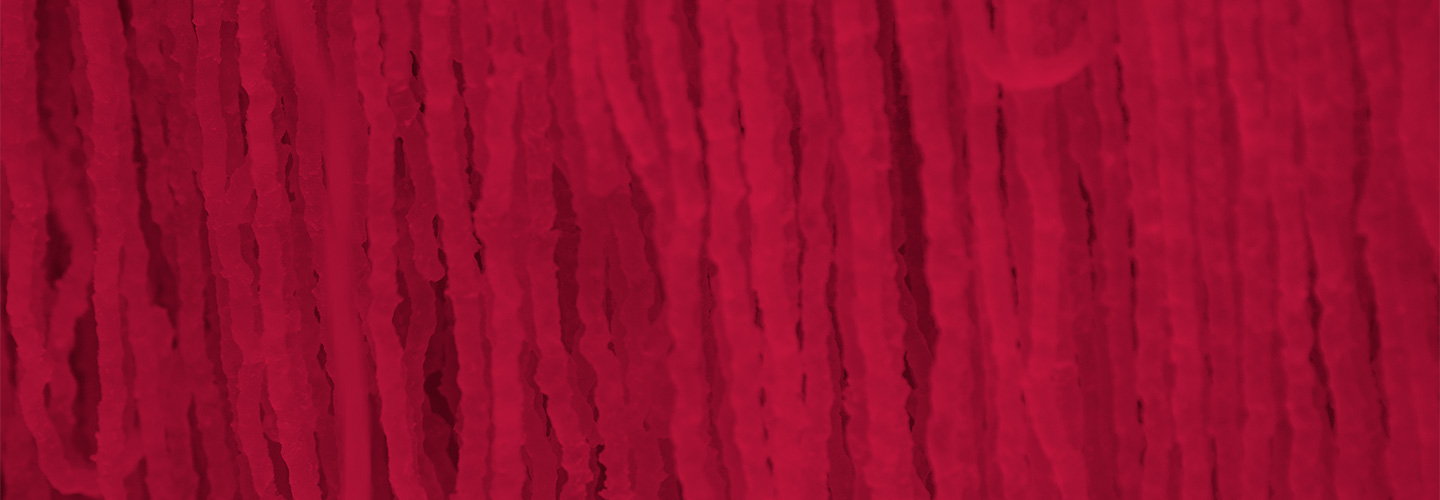
Fish Gelatin
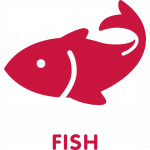
Quality and sustainability!
SUPPLY CHAIN CONTROL
The high quality starts with the selection of the raw material. We produce fish gelatin exclusively from Pangasius and Tilapia fish, supplied directly by the breeders. Periodic audits of the breeders are carried out by our quality department, through a specialised partner company and local authorities, thus ensuring traceability and maximum safety of the raw material and, consequently, of the finished product.
TAYLOR MADE
The company’s extensive experience in the production of gelatine and its flexibility give it an added strength, i.e. the ability to offer a specific product tailored to the customer’s needs.
COLOUR AND LOW TURBIDITY
Fish, compared to the other raw materials used to produce gelatine, is white in colour and has very low turbidity.
SUSTAINABILITY
Various audits are also carried out on sustainability, both on suppliers and in our facilities. Most of our suppliers are also certified with the following certification bodies: ASC, MSC, BAP, GAP.
KOSHER & HALAL FISH GELATIN
In addition to the system certifications, we also offer Halal and Kosher certified products.
100% EUROPEAN QUALITY
We carry out production exclusively in our facility in Tuscany, in accordance with European rules and laws on safety and quality.
What is fish gelatin?
Gelatin is a natural, healthy product which is used for its many physical and quality-based properties in a variety of fields: food, pharmaceutical, pet food, as well as for technical applications. Fish collagen also has the distinction of having a sustainable production process, starting with the farming.
Where does fish gelatine come from?
We produce gelatin from fish skin, using freshwater and farmed fish, such as Tilapia and Pangasius. Fish gelatin is produced by the partial hydrolysis of the collagen that is naturally found in the skin.
Is it suitable for human consumption?
All the fish gelatin that we produce is suitable for human consumption. Lapi Gelatine is certified as a producer of gelatin for human consumption according to EC Regulation No. 853/2004. Our fish gelatin is also compliant with the European Regulations for food and pharmaceutical products, including the European Pharmacopoeia and European Regulations (EC) No. 853/2004, No. 2073/2005, (EU) 355/2016.
Uses in the different industries
Gelatin is an extremely versatile product thanks to its physical (used as a gelling agent, emulsifier, thickener, water binder, clarifying and foaming agent) and first-class qualities which make it the ideal raw material for the production of numerous food and pharmaceutical products. The food industry uses fish gelatin for the production of sweets, baked goods such as cakes, dairy products such as ice cream or cheese, and many others.
It is also used because it brings out the flavour of food, has antioxidant properties and prevents food from drying out, thus preserving it and prolonging its average shelf life. It is also a stabiliser and is free from sugar and fats.
In the pharmaceutical industry, however, it is used for the production of capsules and pills, especially because it is thermoreversible and melts at body temperature. Outer capsules for any medication, for example, are predominantly made of gelatin. The gelatin prevents the active ingredient from being released before it reaches the stomach, thus increasing its efficacy.
Other industries use fish gelatin, such as the pet food industry for example, where it is also used as a source of protein.
Fish gelatin benefits
Fish gelatin is a pure and natural protein. It is made up of 84-90% protein and 2% mineral salts while the remainder consists of water. It does not contain any preservatives or additives and is free from fats, cholesterol and uric acid compounds. Since it is a pure protein, fish gelatin is a valuable source of protein for the body and its benefits are mainly related to the 18 different amino acids from which it is made, 8 of which are essential. These amino acids provide benefits such as an antioxidant effect, increased mobility of joints, strengthening of the immune system and many others.
Inside Lapi’s gelatin-making process
Fish skin gelatin is produced with a complex and multi-stage process using highly technological industrial machinery.
Lapi Gelatine fish gelatine is obtained through a process of partial hydrolysis of the collagen present in the dermis.
The initial raw material is the connective tissue found in the dermis of Tilapia and Pangasius fish. From here, through an acid hydrolysis treatment, the collagen protein is extracted with the sole use of water. Subsequently, this protein is purified through filtration, demineralisation and sterilisation treatments.
The final product, the fish gelatin, is a pure protein of the highest quality.
What are the best types of fish?
We decided to use the skin of Tilapia and Pangasius fish not only because of the availability of the raw material but also because they guaranteed a greater control of the supply chain starting with the fish farm. This allowed us to obtain two important, widely recognised sustainability certifications: “Friend of the Sea” and “ASC” (Aqua Stewardship Council). For this reason, we firmly believe that we have embarked upon the right path and are using the best type of fish.
From the point of view of the benefits obtained by using one species or another, the collagen protein varies only in the percentage of amino acids, so there are no significant known differences.
Fish gelatin manufacturers: how we guarantee our products
With over 60 years of experience in the production of fish gelatin, Lapi Gelatine has supplied some of the best-known pharmaceutical and food companies in the world, thanks to the guarantee of safety. Continuous audits along the entire production line, performed both by our technicians and by third-party companies, start from the selection of the suppliers and the raw materials up to the finished product.
We also comply with ISO and FSSC regulations, high safety standards, guaranteeing a structure and control of the entire industrial sector.
Is fish gelatin Halal?
The entire production of Lapi fish gelatin is Halal WHA certified (World Halal Authorities), an accredited body recognised by all the most stringent certifying bodies in the world, such as: MUI, JAKIM, GAC, MUIS, ESMA, MOPH and the Ministry of Commerce and Textiles in Pakistan.
Is fish gelatin sustainable?
Lapi fish gelatin is certified by ASC and Friend of the Sea thus guaranteeing:
- Safety, thanks to the careful selection of the suppliers of the raw materials.
- Sustainable processes from farming to the final product.
- Third-party-certified quality.
- Social responsibility and environmental ethics.
